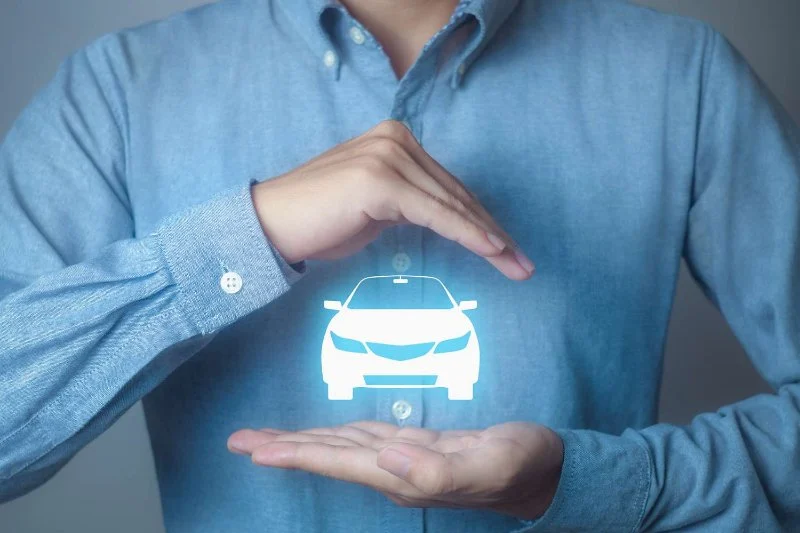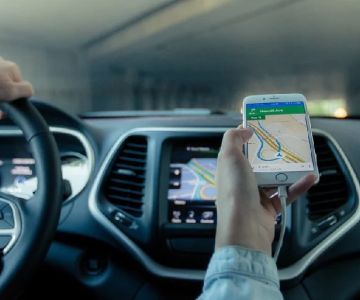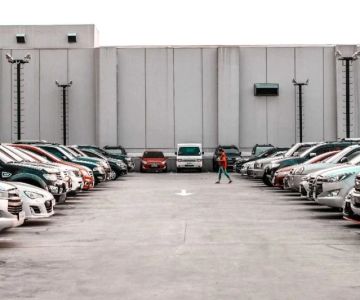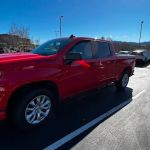
- 1. What is Gap Insurance?
- 2. Does Gap Insurance Cover Car Rentals?
- 3. What Does Rental Car Insurance Cover?
- 4. Key Differences Between Gap Insurance and Rental Car Insurance
- 5. Should You Consider Gap Insurance for Your Rental?
- 6. Conclusion
1. What is Gap Insurance?
Gap insurance is a type of auto insurance that covers the difference (or "gap") between what you owe on your car loan and its actual cash value in the event of an accident, theft, or total loss. It's especially beneficial if you're financing or leasing a car, as the car’s value depreciates quickly, and you could end up owing more than the car is worth.
2. Does Gap Insurance Cover Car Rentals?
The short answer is: no, traditional gap insurance generally does not cover car rentals. Gap insurance is designed to cover the difference between the remaining balance on your auto loan or lease and the vehicle’s value in case of a total loss. Since rental cars are not part of your ownership or lease, they are not covered under your gap insurance policy.
However, some car insurance policies offer rental car coverage, which can help you with rental costs if your personal vehicle is involved in an accident. This is a separate coverage option, distinct from gap insurance.
Exceptions and Special Cases
In some cases, there might be exceptions where gap insurance could indirectly assist with rental costs. For example, if your vehicle is being repaired and you have rental car reimbursement coverage through your personal auto insurance, you may be able to claim for the rental car while your car is out of service. This typically does not involve gap insurance, but it can be a useful form of coverage to explore.
3. What Does Rental Car Insurance Cover?
When renting a car, there are several types of coverage you can purchase to protect yourself:
- Collision Damage Waiver (CDW)/Loss Damage Waiver (LDW): Covers damage or theft of the rental car. While it isn’t technically insurance, it waives responsibility for the costs if the car is damaged or stolen.
- Liability Coverage: Covers damage to other vehicles or property, as well as medical costs if you’re responsible for an accident.
- Personal Accident Insurance: Covers medical expenses for you and your passengers in case of an accident.
- Personal Effects Coverage: Protects personal items inside the car if they are lost or stolen.
Before renting, check with your current auto insurance provider to see if your policy extends coverage to rental cars. Many policies do, which could save you from paying for additional coverage at the rental counter.
4. Key Differences Between Gap Insurance and Rental Car Insurance
Although both gap insurance and rental car insurance provide vehicle-related protection, they cover different situations:
- Gap Insurance: Covers the "gap" between the amount you owe on your car loan/lease and the car’s actual value in case of total loss. It only applies to your personal vehicle, not rentals.
- Rental Car Insurance: Covers the cost of damage or theft of a rental car, as well as liability and personal injury. It only applies while renting a vehicle and typically doesn’t apply to your personal car or any damage beyond the rental.
Understanding these differences helps you choose the right kind of coverage for each scenario. While gap insurance protects your car purchase, rental car insurance protects you while driving a temporary vehicle.
5. Should You Consider Gap Insurance for Your Rental?
While gap insurance won’t cover rental cars directly, you might wonder if it’s a good idea to add this coverage to your policy for personal vehicles. Here are some scenarios where you might want to consider purchasing gap insurance:
- If you're leasing a car: Gap insurance is crucial if you're leasing a car because you could owe more than the car's value if it's totaled or stolen.
- If you're financing a car with a low down payment: If you didn’t pay much upfront, your loan balance might exceed your car's actual value, making gap insurance a good safety net.
For rentals, on the other hand, focus on the rental car insurance provided by the rental agency or your own car insurance to ensure you're adequately covered.
6. Conclusion
While gap insurance is essential for protecting your personal vehicle against depreciation in case of an accident, it does not cover rental cars. To protect yourself when renting a vehicle, consider purchasing rental car insurance or check if your existing auto insurance policy already covers rentals. Always review your options thoroughly before renting to ensure you have the coverage you need.
For more details about insurance options or to book a reliable rental car with full coverage, visit Carvel Car Rental for the best deals and services available.







 Exotic Car Rental Boston | Instant Luxury Rentals5.0 (1 reviews)
Exotic Car Rental Boston | Instant Luxury Rentals5.0 (1 reviews) SIXT Rent a Car Seattle Hyatt Regency4.0 (653 reviews)
SIXT Rent a Car Seattle Hyatt Regency4.0 (653 reviews) GHTD Paratransit Operations & Maintenance Center5.0 (3 reviews)
GHTD Paratransit Operations & Maintenance Center5.0 (3 reviews) Dollar Rent A Car2.0 (1349 reviews)
Dollar Rent A Car2.0 (1349 reviews) Rental Cars Near Me0.0 (0 reviews)
Rental Cars Near Me0.0 (0 reviews) Turo Trucks & Stuff3.0 (2 reviews)
Turo Trucks & Stuff3.0 (2 reviews) Which Car Rental Company Accepts Debit Cards?
Which Car Rental Company Accepts Debit Cards? How to Get the Most Out of Your Car Rental: Tips for a Seamless Experience
How to Get the Most Out of Your Car Rental: Tips for a Seamless Experience Is Advantage Car Rental Good? A Complete Review of Services and Experience
Is Advantage Car Rental Good? A Complete Review of Services and Experience Can I Use a Secured Credit Card for Car Rental? Key Information You Need to Know
Can I Use a Secured Credit Card for Car Rental? Key Information You Need to Know How to Deal with Overbooking Issues at Car Rental Locations
How to Deal with Overbooking Issues at Car Rental Locations Is Budget Car Rental Insurance Worth It?
Is Budget Car Rental Insurance Worth It?